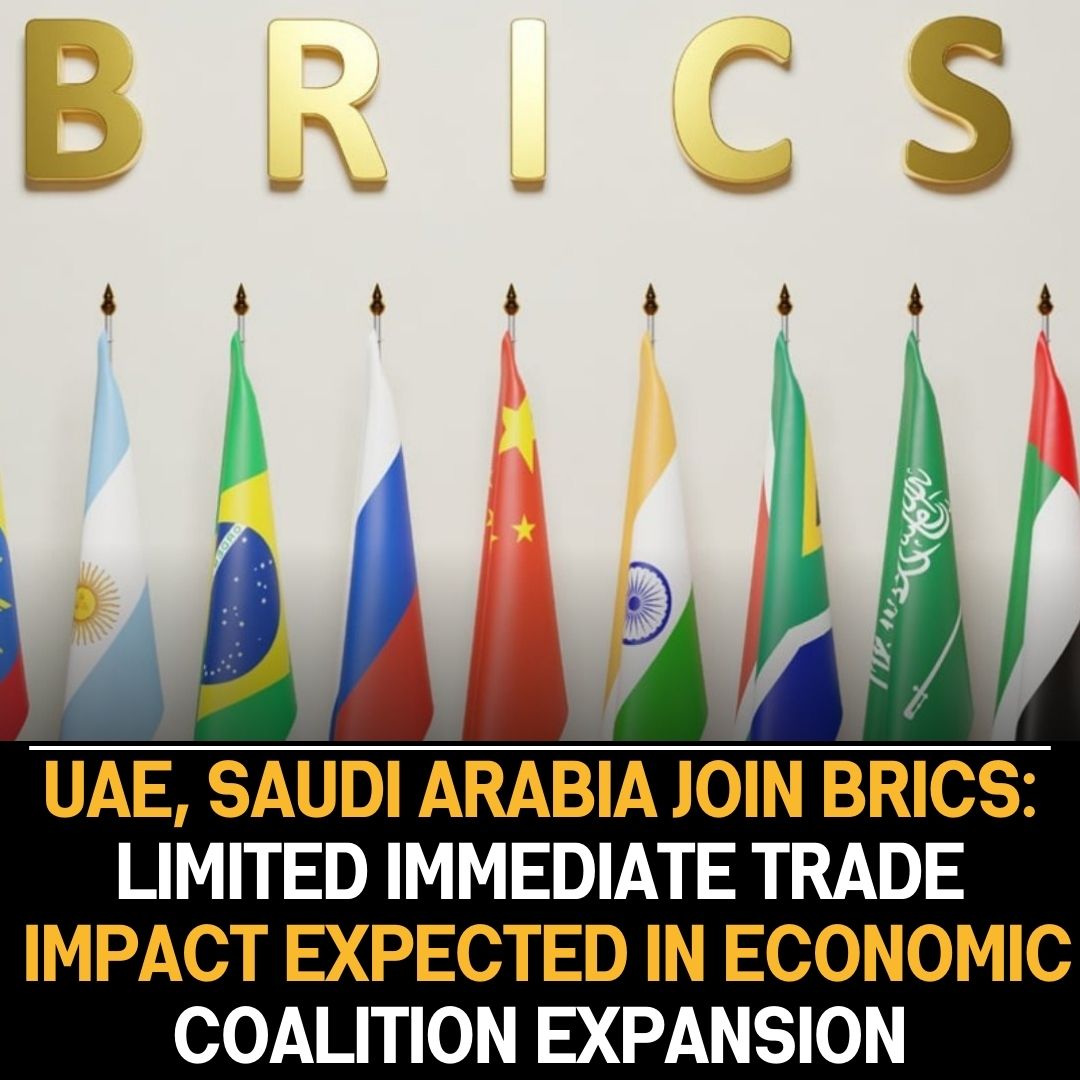In a strategic move, the United Arab Emirates (UAE) and Saudi Arabia have recently become members of BRICS, a coalition of economic powerhouses that includes Brazil, Russia, India, China, and South Africa. This development marks a significant shift in global economic dynamics, and while the immediate trade impact may be limited, it carries profound implications for the geopolitical landscape and economic cooperation in the long run.
BRICS, originally known as “BRIC” before the inclusion of South Africa, represents a collective of major emerging national economies. The addition of the UAE and Saudi Arabia underscores the coalition’s commitment to inclusivity and broadening its influence beyond its original scope. These Gulf nations bring substantial economic strength, strategic geopolitical importance, and diverse resources to the table, enhancing the overall capabilities of BRICS.
The decision of the UAE and Saudi Arabia to join BRICS reflects a strategic alignment with a bloc that has been gaining prominence in the global economic arena. While the immediate trade impact might be limited, the long-term benefits are substantial. BRICS serves as a platform for member nations to collaborate on economic policies, share technological advancements, and collectively address global challenges.
One of the notable aspects of BRICS is its focus on fostering economic development, innovation, and cooperation among its members. The inclusion of the UAE and Saudi Arabia aligns with their respective visions for economic diversification and innovation. As part of BRICS, these Gulf nations gain access to a network of influential economies, providing opportunities for collaboration in sectors ranging from technology to energy.
Geopolitically, this move signals a strengthening of ties between the Middle East and key players in other regions. BRICS, originally formed as an association of emerging economies, has evolved into a formidable force influencing global economic policies. The addition of the UAE and Saudi Arabia expands the coalition’s reach into the Middle East, creating new avenues for diplomatic, economic, and cultural exchanges.
While the immediate trade impact might not be pronounced, the long-term implications are multifaceted. BRICS nations collectively possess a significant share of the global economy, and the addition of the UAE and Saudi Arabia further consolidates this influence. As these Gulf nations integrate with the coalition, there is potential for increased collaboration in areas such as infrastructure development, trade facilitation, and joint initiatives in science and technology.
In conclusion, the decision of the UAE and Saudi Arabia to join BRICS marks a strategic realignment in global economic dynamics. While the immediate trade impact may be limited, the long-term implications are profound. This move reflects a commitment to fostering economic cooperation, innovation, and diplomatic ties on a global scale, positioning the Middle East as an integral part of the evolving landscape of economic powerhouses.









